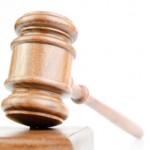 There are several important steps Virginia trial counsel can take when litigating a subrogation case in front of a Virginia jury. Paul Falk’ and Bradley Arnold’s article in the recent Subrogator magazine delves into effectively communicating to jurors the role of subrogation and minimizing prejudices against insurance companies. Their work should be adopted by Virginia subrogation attorneys looking to hone their jury trial skills. Arnold and Falk successfully litigated a property damage case involving a negligently installed fireplace in Wisconsin, which is the basis of their article and the following advice for Virginia subrogation attorneys:
There are several important steps Virginia trial counsel can take when litigating a subrogation case in front of a Virginia jury. Paul Falk’ and Bradley Arnold’s article in the recent Subrogator magazine delves into effectively communicating to jurors the role of subrogation and minimizing prejudices against insurance companies. Their work should be adopted by Virginia subrogation attorneys looking to hone their jury trial skills. Arnold and Falk successfully litigated a property damage case involving a negligently installed fireplace in Wisconsin, which is the basis of their article and the following advice for Virginia subrogation attorneys:
Theme Development
This is a key point for Virginia subrogation attorneys litigating cases in front of juries. Jurors have never heard of subrogation and need to be educated as to what it is and why your client, the insurance company, is entitled to it. Virginia subrogation attorneys would be wise to establish a theme of wrongdoing that has occurred, and that the jury’s role is to prevent such wrongdoing in their community. Virginia subrogation attorneys would be wise to downplay the procedural aspects of subrogation, and concentrate more on the equitable aspects of it.
Voir Dire
The Virginia subrogation attorney should ask jurors whether they can be fair to a property insurer when judging the merits of the case. Counsel would also be wise to use voir dire to explain to the jurors what subrogation is, emphasizing that subrogation is simply trying to place fault on the appropriate party.
Opening
Unlike a personal injury case, Virginia subrogation cases should revolve more around culpability rather than damages. Even if damages are in contention, counsel would be wise to address any disparities in witness testimony or closing arguments.
Closing
Closing arguments are a chance for the subrogation attorney to remind the Virginia jury of their state’s role in shaping this great nation’s government, and that jurors have long acted as the community’s conscience, not the king’s.
